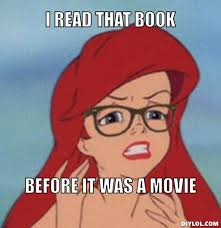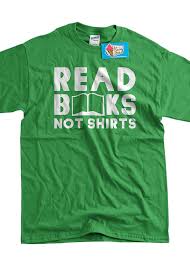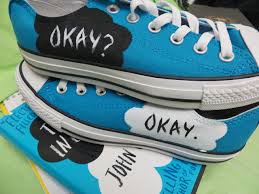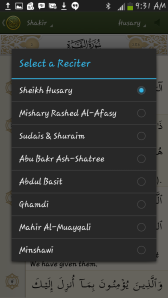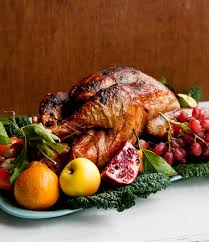
Asallam Alaykum everyone!
Recently, I was at a sister’s event themed ‘Women in Islam’ while i would have loved to discuss the event, something happened that almost brought me to tears.
While the lecturer was discussing the importance of sisters raising their kids, a sister was sobbing quietly beside me. Initially I thought she was making a call, until I realized she was crying. So I spoke to her and we went outside.
While outside she kept cursing her parents which I found really disturbing, all my effort to calm her down proved abortive as she was really emotional and very sad.
I went inside to call another sister who was a doctor to speak to her, after a while she calmed down and told us that in her own words ” I wish my parents have never allowed me to do what i wanted, i wish they had guided me, I wish they had not given me so much freedom while growing up”
She added: “Because they allowed me to do what i wanted, i made so many mistakes…………
And I wept too.
All my life I have never really appreciated the fact that my parents and brothers had Ghirah protective jealousy for me. I was never allowed out without a wali or parental supervision and when I was indeed going out they made sure that it was with the people and friends they were confident about.
Recently, i got a job about 2 to 3 hours away from home and parents as usual were very concerned about me, they trust me a lot, but they don’t want to be in a situation whereby if anything happens to me, what would they say? And how would they account for it in front of Allah?
Now that I think of it, I can’t help but say Alhamdulillah for having parents/Family who made sure that I was taught the deen and guided aright.
Alhamdulillah, the sister was fine later on and we told her to pray for her parents instead.
However, this made me think about so many parents who think granting their child freedom is the best thing for them but in reality they are still children and children always need guidance.
In this vein, here are some ways to train our children.
Du’a
Sometimes we get carried away with praying for the right spouse that we forget to pray for righteous children too. It is not too early, start praying for responsible kids as soon as possible even before you get married.
Give the child a good name
Parents have the responsibility to provide the child with a good name which is in accordance with Islamic traditions. One of the hadith in this context is the one narrated by Naafi’ that Ibn ‘Umar said: The Messenger of Allah (sallallahu alaihi wa sallam) said: “The most beloved of your names to Allah are ‘Abd-Allah and ‘Abd al-Rahmaan” (Narrated by Muslim, 2132).
Teach by example
Because children listen with their eyes. Parents are the most influential role models children are likely to have. Parents who worship Allah correctly, and and show respect, kindness, honesty, friendliness, hospitality and generosity to their children will encourage them to behave in the same way.
Introduce them to the deen
As early as possible introduce Allah/Islam to your child: His glory, obedience to Him over obedience to anyone else, asking only from Him, Importance of obeying his command etc.
Introduce Rasoolullah to your child: His life & times, following his Sunnah in everything in life, his Message, and his Work: Da’wah.
Helping children to choose their role models
Role models help people to model their behavior and character after those personalities. Parents should, therefore, help their children choose their role models wisely. While small I have always wanted to grow up like Aisha because I thought whoever memorized and taught so many hadith must be really brilliant.
While it may be difficult to teach children about each one of the sahabahs, parents should at a minimum introduce these personalities to their children and how such personalities achieved high status within Islamic circles. Planting the seeds of respect for such personalities at an early age in your children’s hearts will make it easier for them to seek out more knowledge about these personalities of Islam when they get older.
Teach your children skills that lead to earning only Halal (legal)
Parents should spend their time, effort, and resources to help their children make the right choices for earning a living. In doing so, parents should stress the need for their children to pursue career paths that can provide them solely with Halal (legal) living.
Provide your children a healthy environment for their upbringing
Training children so that they can grow up to become responsible citizens requires that parents actively maintain an atmosphere at home that is conducive to positive learning and upbringing.
Physical fitness
Mothers stop pampering. Regular sports, especially team sports, nutrition, no junk food.
Scheduling time
Make sure they sleep and wake up early. Schedule time for TV, visits. Cartoons, Quran memorization etc.
Treating others right
Children should, therefore, be taught to be respectful and dutiful to their parents, maintain good relations with relatives, and neighbors. Children should also be warned against picking up habits that can lead to disrespecting others. These include backbiting, slandering, lying and abusing others.
Teaching children Islamic morals and characters
Besides teaching children the rituals of worship and the rights of individuals, children should be taught Islamic morals, characters, and etiquette from an early age so that it becomes part of their habits. Children should be taught the principles of humility, tolerance, patience, and other such behavioral traits. These personality traits can help any individual tremendously in their lives. For example, teach them about patience and tolerance and dealing with tough situations, and they will be thankful to you for the rest of their lives.
Drive for excellence in everything
Teach them that Muslims are the best of Mankind and they should make being No.1. a habit. And don’tt scold them when they are losing. Teach them to focus on quality and being a Standard Bearer of Islam.
Expressing Love
Parents should also express their unconditional love for their children, as well as provide them with the continued support they need to become self-assured and happy.
It’s also important that parents’ guide their children aright and reasonable expectations for their children and tell them in plain words what they expect from them.
Raising a child is the hardest, most responsible and satisfying task a human being can face. It’s also the job for which people receive the least formal training, May almighty Allah make parenting easier for us all, and grant us children who would pray for Jannah for us. Ameen
P.S Mabrook to my very close friend Azeezah who just got married, May Almighty Allah accept it as an act of Ibadah and grant you sabr as you complete half of your faith. Ameen
Fee amanillah wasalam.x
Read More on Child Raising Productive and Confident Muslim Kids (Part 2)

